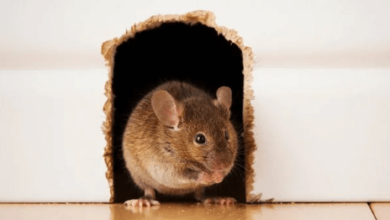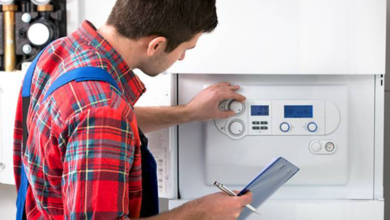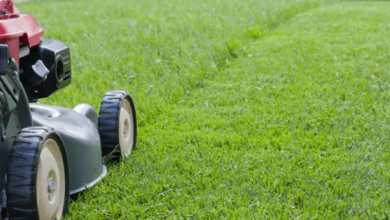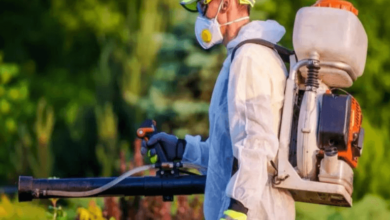Can You Compost Everything in Your Garden Waste? (Spoiler: No)

Composting rocks because it lets you recycle garden stuff into awesome soil. It not only gives your plants a boost but also cuts down on waste going to landfills, which is great for the planet. But, you’ve got to be careful about what you toss in the compost bin.
Picking the right stuff is key to keeping away bugs and not messing up your plants. If you know what’s good to use and what to skip, your compost pile will be thriving. Plus, it helps your garden grow better and makes it more eco-friendly.
The Carbon-to-Nitrogen Ratio
Getting the right mix of carbon and nitrogen is super important for making good compost. Carbon is what you get from ‘brown’ stuff like dry leaves and twigs, and nitrogen comes from ‘green’ stuff like grass and veggie bits.
If you get the balance right, your compost will break down nicely. Too much carbon slows things down, and too much nitrogen makes it stink. A good tip is to layer the ‘browns’ and ‘greens’ in your compost bin to keep things balanced and make awesome compost.
Compostable Garden Waste
Turning your garden waste into compost is a great way to recycle and boost your garden’s soil. Grass clippings are perfect for this because they’re packed with nitrogen. After mowing, just spread them out evenly in the compost bin so they don’t clump together or start to smell.
Leaves are awesome too. If you shred them first, they’ll break down faster. You can even compost small branches if you chop them up to help air flow through the pile.
Composting this stuff cuts down on waste and makes your garden soil richer, which is awesome for plant growth. Why not give composting a go for a greener garden?
What Not to Compost in Your Garden
Composting is awesome, but it’s super important to know what shouldn’t go in your compost bin to keep it healthy. First up, don’t toss in diseased plants. They can spread nasty stuff to your garden. Just seal them in a plastic bag and chuck them in the bin.
Then there are weeds with seeds. If these seeds make it through composting, you’ll have weeds all over your garden. Try solarising them by leaving them in clear plastic bags out in the sun to fry the seeds before binning them.
Oh, and avoid meat products—they bring pests and stink up the place. It’s best to let local organic waste services deal with those. Stick to these tips, and you’ll find composting way easier. Why not start by keeping these out and see your garden flourish?
Impact of Adding Non-Garden Items
Composting isn’t just about chucking any old waste into a pile and hoping for the best. Imagine finding your compost pile smelling like a cheese shop—definitely not what you want in your garden!
That’s because dairy products like cheese and milk, along with oils and processed foods, can really muck things up. These items don’t break down like plant matter does. Instead, they can create unpleasant odours and attract all sorts of unwanted pests.
Cheese and milk, for instance, can become a sticky, gooey mess that slows everything down. Oils, on the other hand, act like a waterproof coat, stopping other materials from decomposing properly.
And those sneaky preservatives in processed foods? They can really throw a spanner in the works.
So, how do you keep your compost happy and thriving? It might be best to avoid popping these troublemakers into your compost. You could toss them in the bin or, if you fancy being a bit more eco-friendly, see if they can be fed to animals.
Many areas have special food waste collections that handle these items properly, so it might be worth checking out what’s available in your neck of the woods.
By sticking to garden waste like leaves, grass clippings, and vegetable scraps, you’ll keep your compost fresh, odour-free, and just the ticket for nourishing your plants.
Why not give it a go? With a little effort, your garden soil will be rich and ready to help your plants flourish.
Maintaining a Healthy Compost Pile
Got a pile of kitchen scraps and garden clippings? Let’s turn it into black gold! The secret to a thriving compost heap is all about managing airflow, moisture, and warmth. Imagine your compost pile as a warm, moist kitchen sponge that occasionally needs a bit of fluffing up.
First off, airflow is super important. Think of it as giving your pile a big, refreshing breath. Grab a pitchfork or a trusty shovel and give it a good turn every week or two.
This little workout helps everything break down faster. If you’re ever unsure, just poke a few holes and see if the centre feels compacted. If it does, it’s time for a spin.
Now, let’s chat about moisture. You want your compost to feel like a damp sponge. Not too dry, not too soggy. Give it a squeeze test. If it crumbles, it’s thirsty—so give it a splash of water.
On the other hand, if it’s a bit swampy, toss in some straw or shredded paper to soak up the excess. Picture this: my neighbour once tried to compost a whole loaf of bread. Let’s just say, it didn’t end well and the paper came to the rescue!
Temperature is the final piece of the puzzle. You want your pile to be cosy and warm, somewhere between 57°C and 71°C.
If it’s feeling a bit chilly, try adding some nitrogen-rich materials like kitchen scraps or even covering it with a tarp to trap the heat. If it’s too cold, the process slows down, and nobody wants a lazy compost pile.
Here’s a simple routine to keep your pile in tip-top shape: turn it regularly, check the moisture, and cover it up if needed. This weekly ritual will make a world of difference.
Why not give it a go this weekend? Your plants will thank you with a flourish of green, and you’ll have some top-notch compost in no time.
Alternatives for Garden Waste That Cannot Be Composted
Not all your garden waste can go in the compost bin, but don’t worry—there are some smart ways to still help your garden out. How about trying mulching?
Just spread some wood chips or shredded leaves around your plants. It keeps the soil wet and stops weeds from taking over. Plus, you won’t have to water as much, making gardening easier.
If you’ve got more waste than you can mulch, think about checking out local green waste collection services. Lots of places have programs where they pick up organic waste and turn it into compost.
Just give your local council or community waste service a ring to find out about their schedules and what you need to do.
By trying these ideas, not only do you keep your garden looking good, but you also help the environment. Give these tips a shot and see your garden thrive while being eco-friendly.
Conclusion
If you want to get good at composting, it’s important to know what garden waste is helpful. Things like grass cuttings, leaves, and little branches are great for your garden soil. But, steer clear of sick plants and dairy stuff to keep things running smoothly.
When you get the hang of it, composting becomes fun and it’s awesome for the environment too. Chatting with other gardeners about what works and what doesn’t can boost everyone’s skills.
Checking out more resources can also help make your composting journey even better. Let’s aim for a greener world by using smart composting tips and encouraging others to join in.




